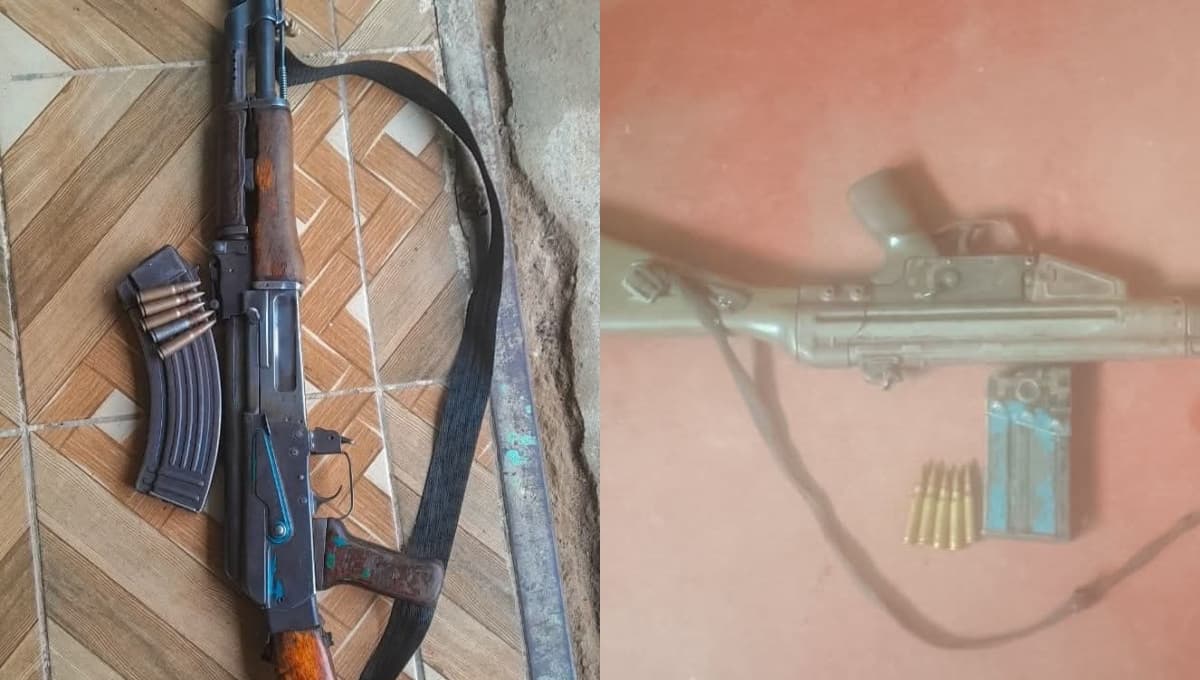We're loading the full news article for you. This includes the article content, images, author information, and related articles.
A government-led security operation, 'Operation Rudisha Bunduki', sees a significant increase in voluntarily surrendered firearms in the North Rift, signalling potential progress in a region long destabilised by banditry and inter-communal conflict.

NAIROBI, KENYA – Security agencies in Elgeyo Marakwet County are reporting notable progress in their mission to restore peace, following the voluntary surrender of additional illegal firearms by residents this week. On Wednesday, 5 November 2025 (EAT), the National Police Service (NPS) announced that six rifles and 27 rounds of ammunition were handed over to authorities at Embobut Police Station the previous day. The individuals who surrendered the weapons hailed from the Kipchumwa, Wewe, Endul, and Maron sub-locations of Marakwet sub-county, according to the NPS statement.
This latest development is a part of the broader, government-led 'Operation Rudisha Bunduki' (Return the Guns), a multi-agency initiative aimed at mopping up illicit arms that have fuelled decades of insecurity in Kenya's North Rift region. The operation combines security enforcement with amnesty offers and community engagement to encourage disarmament.
The surrender on Tuesday, 4 November 2025, brings the total number of illegal firearms recovered in Elgeyo Marakwet County alone to 299, accompanied by 2,173 rounds of ammunition and one fragmentation rifle grenade, as confirmed by the NPS. This figure represents a significant portion of the total arms recovered across the entire North Rift. Speaking in Baringo County on Tuesday, 28 October 2025, Interior Cabinet Secretary Kipchumba Murkomen announced that a total of 602 illegal firearms had been recovered across the volatile region, with 170 from Baringo County alone. President William Ruto reiterated these figures on the same day, warning that the government would forcefully disarm those who fail to surrender weapons voluntarily.
The numbers indicate a steady flow of surrenders over recent months. For instance, by 25 September 2025, the operation had collected 232 firearms and 1,595 rounds of ammunition. This grew to 281 firearms and 2,033 rounds by 6 October 2025, following several handovers in Elgeyo Marakwet and neighbouring Baringo County. The NPS has consistently lauded the cooperation of community members, local elders, and peace committees, stating their support is critical to the success of the disarmament exercise.
For decades, the Kerio Valley, which cuts across Elgeyo Marakwet, West Pokot, and Baringo counties, has been an epicentre of banditry and cattle rustling. These activities, exacerbated by the proliferation of illegal automatic weapons, have resulted in countless deaths, displacement of communities, destruction of property, and stalled development. The conflict is often rooted in competition for resources like pasture and water, historical inter-ethnic grievances, and commercialised cattle raiding. The violence has forced school closures and created a pervasive climate of fear, disrupting all aspects of normal life.
Past disarmament efforts have often been met with mistrust and limited success. However, the current approach, which officials describe as "intelligence-led and humane," appears to be fostering greater community buy-in. Interior CS Murkomen, speaking on 4 October 2025, emphasized that the government's goal is to permanently silence the guns and restore normalcy. He also noted that the government would support reformed bandits with reintegration programmes to ensure they return to productive community life.
The success of 'Operation Rudisha Bunduki' holds significant implications for national security and regional stability. The North Rift's porous borders have historically facilitated the flow of small arms and light weapons, contributing to instability not just within Kenya but across the wider East Africa region. A peaceful Kerio Valley is crucial for securing a vital economic corridor and fostering development in a region with immense agricultural and tourism potential.
The government's strategy of combining security operations with community dialogue, amnesty, and development incentives is being closely watched as a potential model for conflict resolution in other pastoralist areas. While the recent surrenders are a positive sign, establishing lasting peace will require sustained government commitment to addressing the root causes of conflict, including resource disputes, political incitement, and lack of economic opportunities. As the disarmament continues, residents and observers remain cautiously optimistic that this initiative may finally mark a turning point for the troubled region.
Keep the conversation in one place—threads here stay linked to the story and in the forums.
Sign in to start a discussion
Start a conversation about this story and keep it linked here.
Other hot threads
E-sports and Gaming Community in Kenya
Active 9 months ago
The Role of Technology in Modern Agriculture (AgriTech)
Active 9 months ago
Popular Recreational Activities Across Counties
Active 9 months ago
Investing in Youth Sports Development Programs
Active 9 months ago
Key figures and persons of interest featured in this article